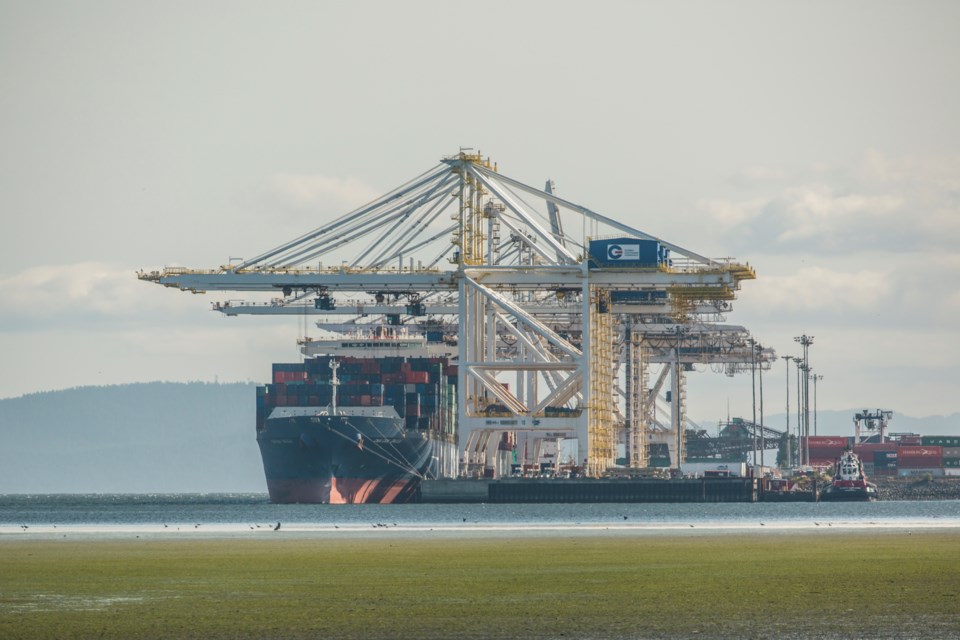A controversial port expansion project at Roberts Bank south of Vancouver is facing a judicial review after four environment groups claimed its operations will jeopardize the survival and recovery of the already endangered southern resident killer whale population.
The Roberts Bank Terminal 2 Project — proposed by the Vancouver Fraser Port Authority and approved by the federal government last month — is part of the Canada Pacific Gateway area, the country's most important trade corridor and a shipping nexus where more than $275 billion in goods transit every year.
Built on a new man-made island adjacent to the current Deltaport container facility, the expansion project is expected to increase the port's capacity by 50 per cent. Without the expansion, the federal government says $3 billion in added GDP would be put at risk by capacity shortages.
Approval for the project came with 370 legally binding conditions to protect the environment and prevent harm to local species. But in a request for judicial review filed in a Vancouver federal court last week, Raincoast Conservation Foundation, the Georgia Strait Alliance, David Suzuki Foundation and the Western Canada Wilderness Committee allege Ottawa’s approval of the project breaches federal laws designed to protect endangered species.
“This is a really big container shipping terminal and a very bio-diverse place in the Fraser River estuary,” said Dyna Tuytel, lead lawyer for the plaintiffs. “Regardless of the government's other goals, such as trade goals, or economic goals, they ultimately have a responsibility to follow their own laws, including the Species at Risk Act.
“It's a mandatory set of requirements.”
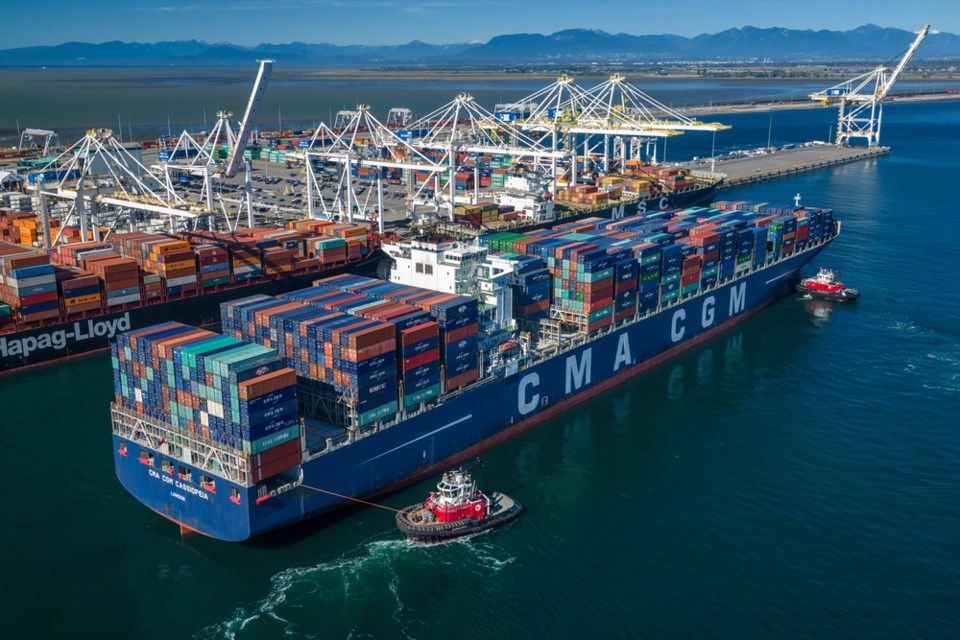
Tuytel says a number of species — such as the barn owl, sandpipers and a number of aquatic species like Dungeness crabs — could be negatively affected by the terminal expansion. But the case will hinge on several feasible measures to protect killer whales that the federal government failed to require as part of the project approval, said the lawyer.
Alex Munro, a spokesperson for the Vancouver Fraser Port Authority, said Roberts Bank Terminal 2 is "essential for Canada" and maintaining capacity over the long-term.
Munro said the port authority has consulted nearly 50 Indigenous groups over the project since 2011, and that it was "proud of our close collaboration." He pointed to "landmark relationship agreements with Tsawwassen First Nation and Musqueam Indian Band."
"Our focus is on advancing the project under our public-interest mandate in a way that protects and enhances the environment, is reflective of Indigenous priorities, and considers the needs of local communities," Munro said in an email.
Southern residents under threat
Ranging from California to С����Ƶ, the southern residents' numbers have stagnated at 73 individuals in recent years. The most recent analysis from Fisheries and Oceans Canada shows they face a 24 per cent chance of functional extinction as early as 75 years from now.
The southern resident killer whales face several pressures — from industrial toxins to collisions with boats and acoustic disturbances due to vessel traffic.
One of the biggest threats to the animals is a lack of food. Roughly 80 to 90 per cent of the southern resident killer whales diet comes from chinook salmon. But the salmon species is already dwindling in the face of habitat destruction, overfishing, disease and the effects of global warming on the sea. A suffering prey population means there are fewer fish for whales to hunt.
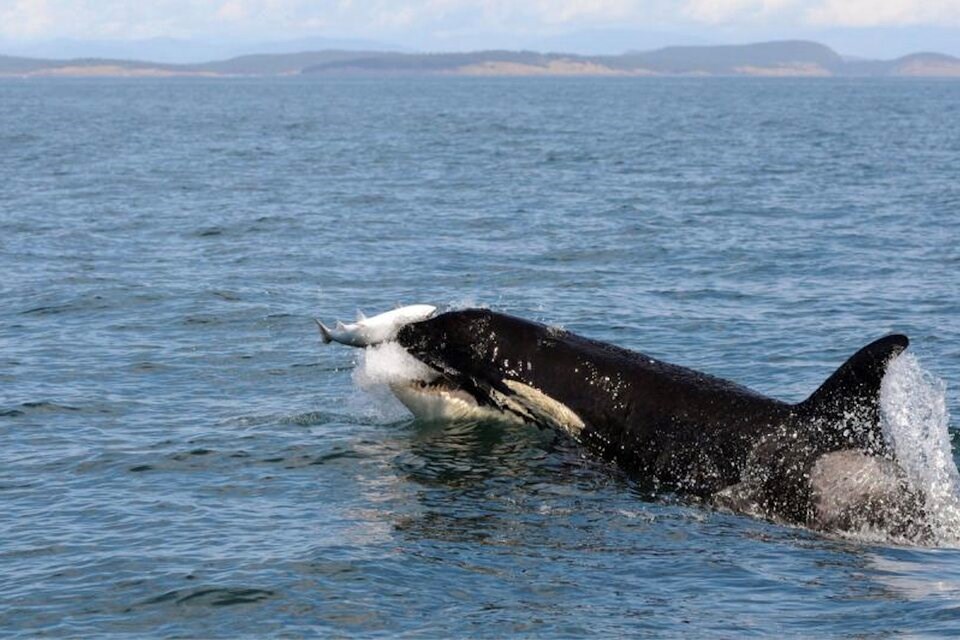
Add noise from shipping traffic, which can effectively blind killer whales by interfering with their ability to echolocate prey, and a whale’s prospect of getting enough fish to survive sinks.
Without enough fish, the whale begins to starve. Starvation leads the animals to burn through fat reserves — the same place where pollution like the banned industrial chemical polychlorinated biphenyls, or PCBs, accumulate. When that fat burns, those toxins are mobilized, coursing through the whale and often dampening its immune system.
“It’s a very complex, multifactorial death by a thousand cuts, which makes it difficult to manage,” according to research scientist Sheila Thornton, who leads the marine mammal conservation physiology program at DFO.
The application to the court says the shipping terminal expansion will be built on the migration path of juvenile chinook salmon. The documents point to a 2020 review that found underwater light and noise from the terminal would have “significant adverse effects” on those young chinook salmon, threatening the whales’ preferred prey.
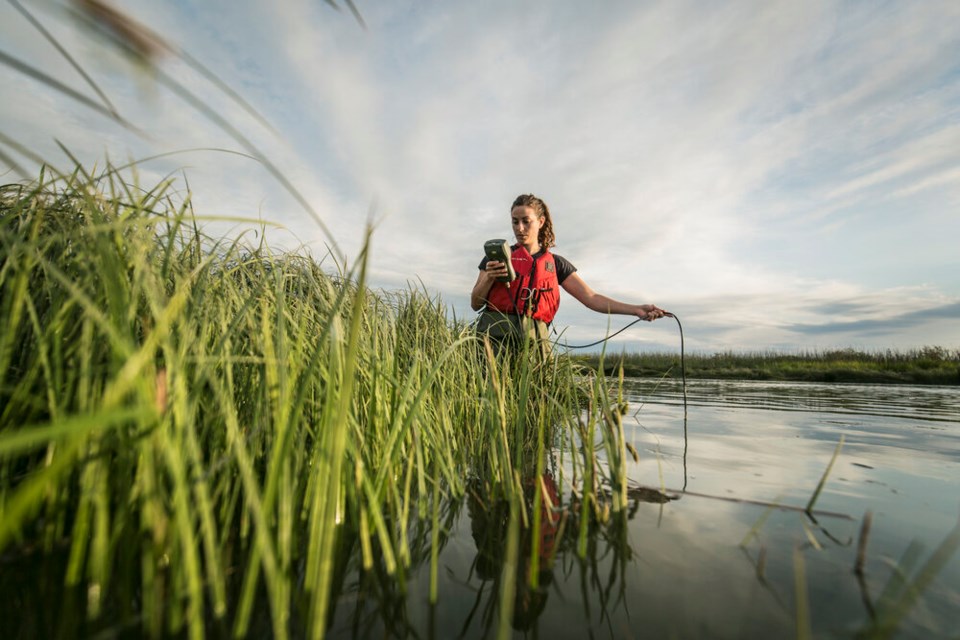
One of the port's approval conditions involves monitoring noise levels and implementing procedures to delay the departure of container vessels to protect the area's southern resident killer whales.
The government said the decision comes after extensive consultations with local communities and Indigenous groups.
“The approval of this project was not taken lightly,” said federal Environment Minister Steven Guilbeault in a statement at the time.
While the Vancouver Fraser Port Authority has taken the position that overall shipping won’t increase as a result of the project, Tuytel says many ships would be redirected from the port at the City of Vancouver to the Roberts Bank expansion terminal, a high use area for the southern residents.
The lawyer also said the project proposal fails to ensure the renewal of a seasonal project run by the port that requires vessels to slow down and reduce underwater noise as they enter the Salish Sea.
“Their own environmental review showed this project could condemn southern resident killer whales, and the chinook salmon they depend on, to extinction,” Jeffery Young, senior science and policy analyst for the David Suzuki Foundation, said in a statement.
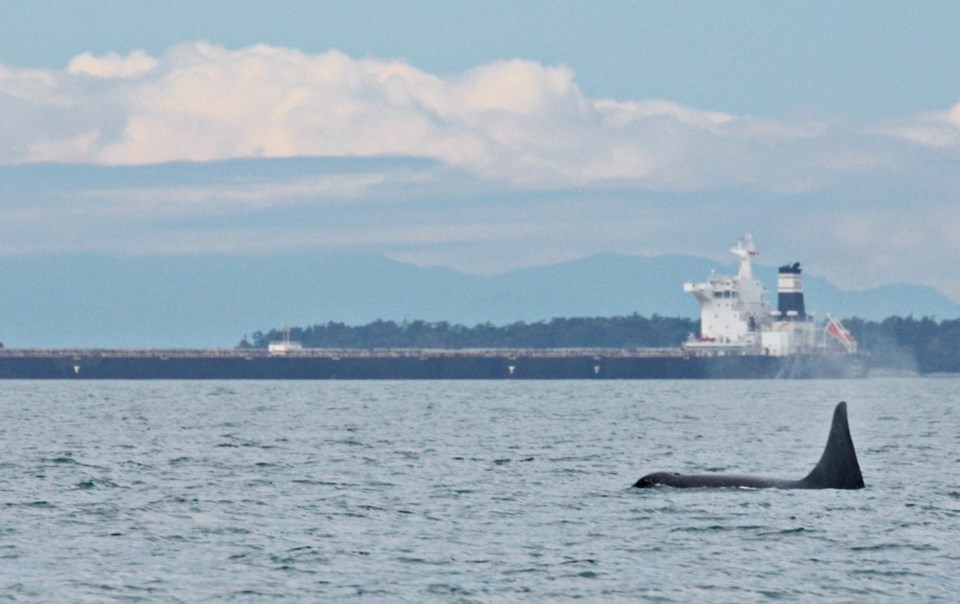
Tuytel said a lot of the measures in the current Roberts Bank Terminal 2 Project proposal are “plans to make a plan” with no backstop if those plans fall through.
“So there's a risk of a pretty catastrophic failure if it turns out that what the proponent ends up attempting is not effective,” she said.
More broadly, Tuytel says the request for judicial review challenges the federal government's discretion to approve major projects when they clash with prohibitions against destroying critical habitat or jeopardize the survival or recovery of a species.
Courts as a last resort to protect southern resident killer whales
The court action comes as U.S. jurisdictions move to take a more precautionary approach to protecting the southern resident killer whale population. A Seattle judge recently vacated key federal authorizations required for a chinook salmon fishery in southeast Alaska.
Barring appeal, the decision handed down earlier this month would allow 172,000 chinook that would have been harvested or indirectly killed in Alaska to continue their journey south, where they will spawn in watersheds across Vancouver Island, the С����Ƶ mainland and up the Columbia River in the U.S.
The arrival of the fish would represent roughly a five per cent boost in the availability of prey for southern resident killer whales, just enough to allow the population to stabilize but not grow, according to an expert declaration to the court from Robert Lacy, a conservation scientist with the Chicago Zoological Society.
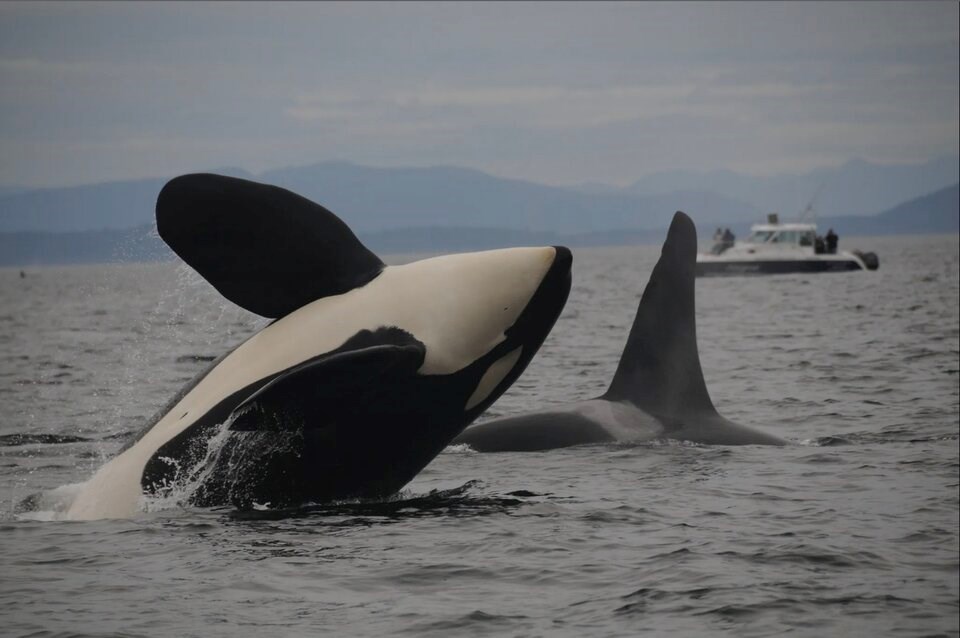
Tuytel says Washington State is also taking steps to increase vessel approach distances to the whales, part of a suite of measures — including fines, permitting and manpower — that members of a say puts the state ahead of С����Ƶ
“And meanwhile in Canada, we have this project approved, we have the Trans Mountain expansion project coming online within the next year, and even decisions that get less attention like the recent opening of some chinook fisheries in С����Ƶ that target hatchery fish,” she said.
“The bigger picture is a mixed bag of small steps in the right decision, but also significant setbacks for the southern residents.”
The request for judicial review calls on the federal court to quash approval of the Roberts Bank Terminal 2 Project. That could lead to two outcomes, said Tuytel: a full rejection of the project, or if possible, approval that includes “all feasible measures” to prevent jeopardy to the survival and recovery of the southern resident killer whales.
The federal government and the Vancouver Fraser Port Authority, both named in the case, have 10 days to file a response. Tuytel expects the case to end up in court sometime near the end of 2023.
With files from the Canadian Press and Sandor Gyarmati
Editor's note: A previous version of this story failed to list Raincoast Conservation Foundation as one of the plaintiffs in the request for judicial review. We regret any confusion.
